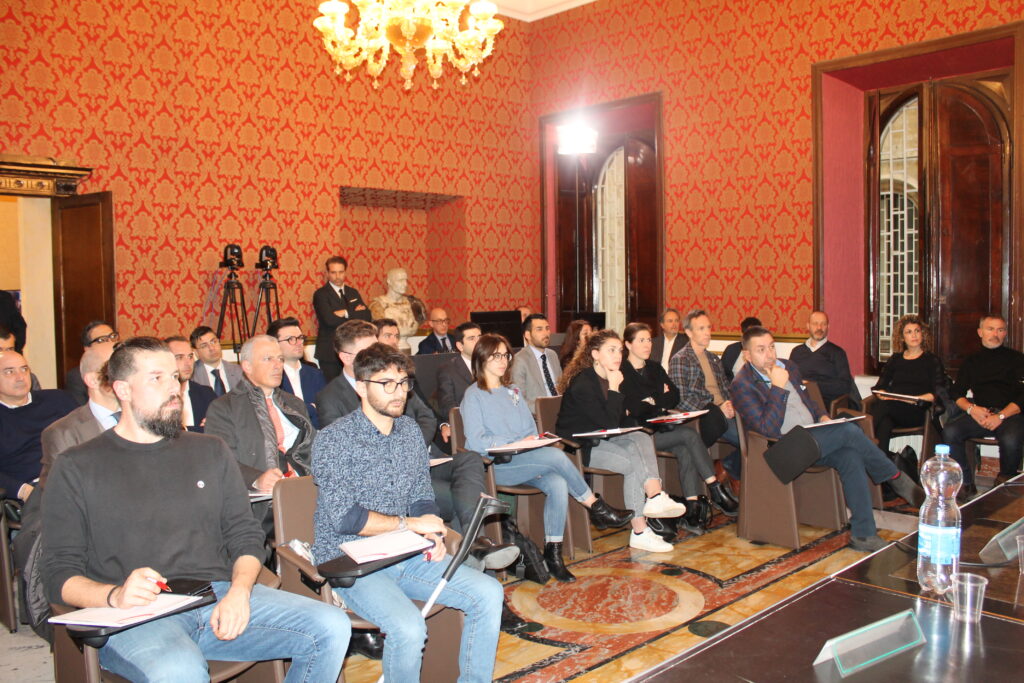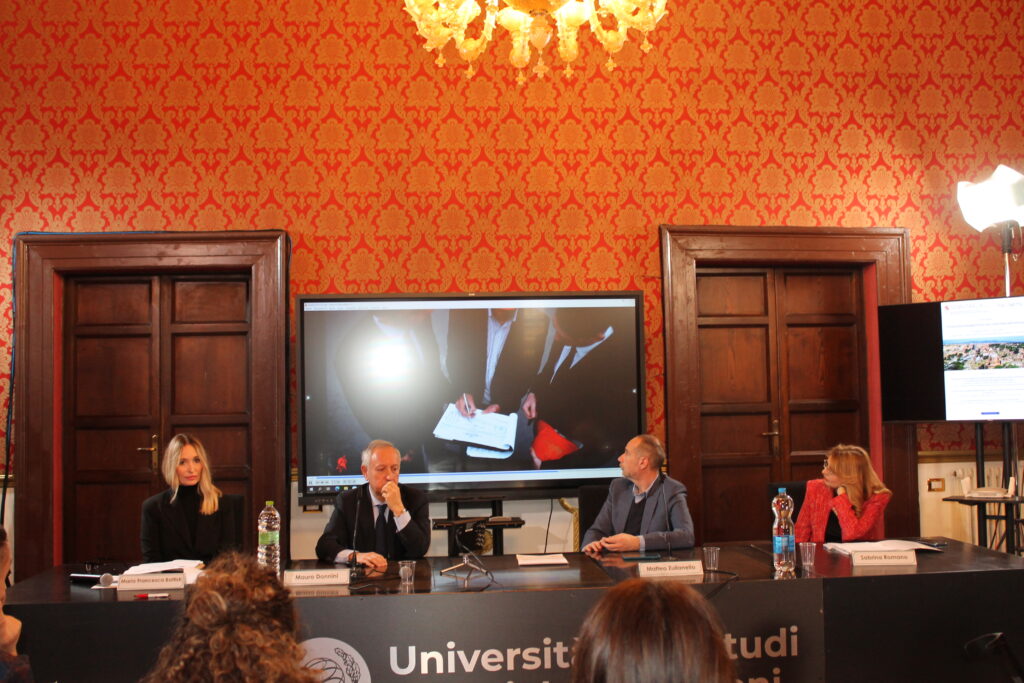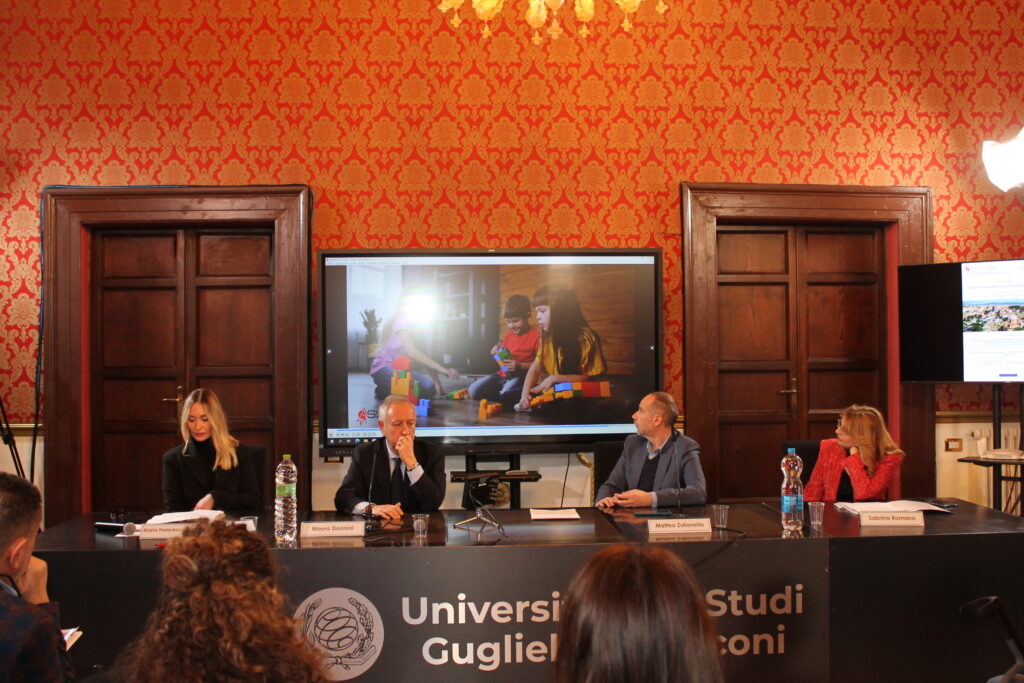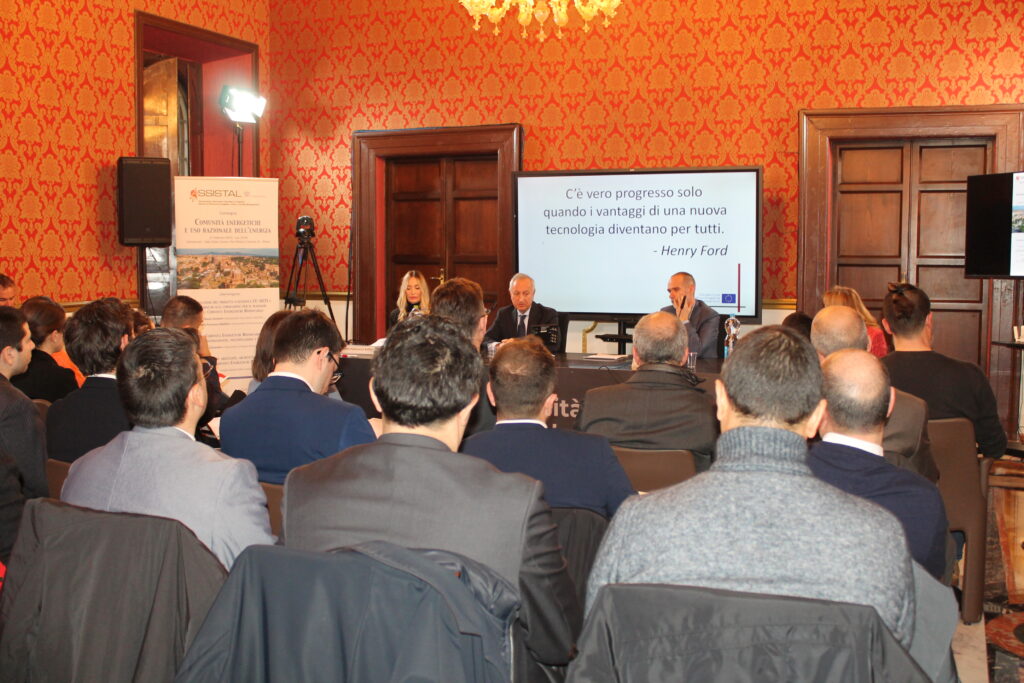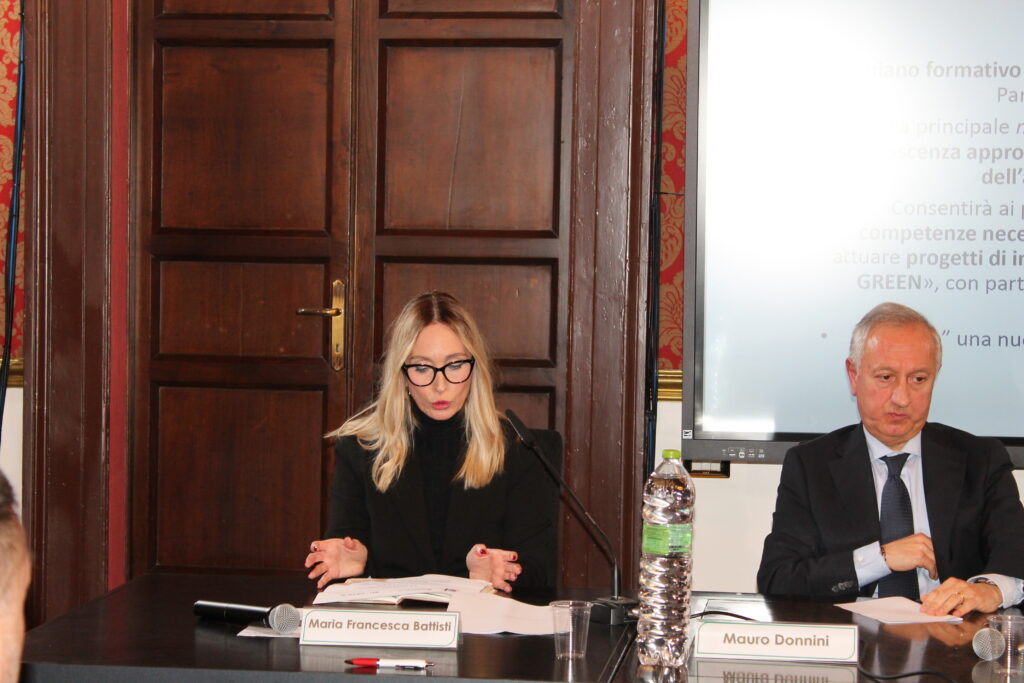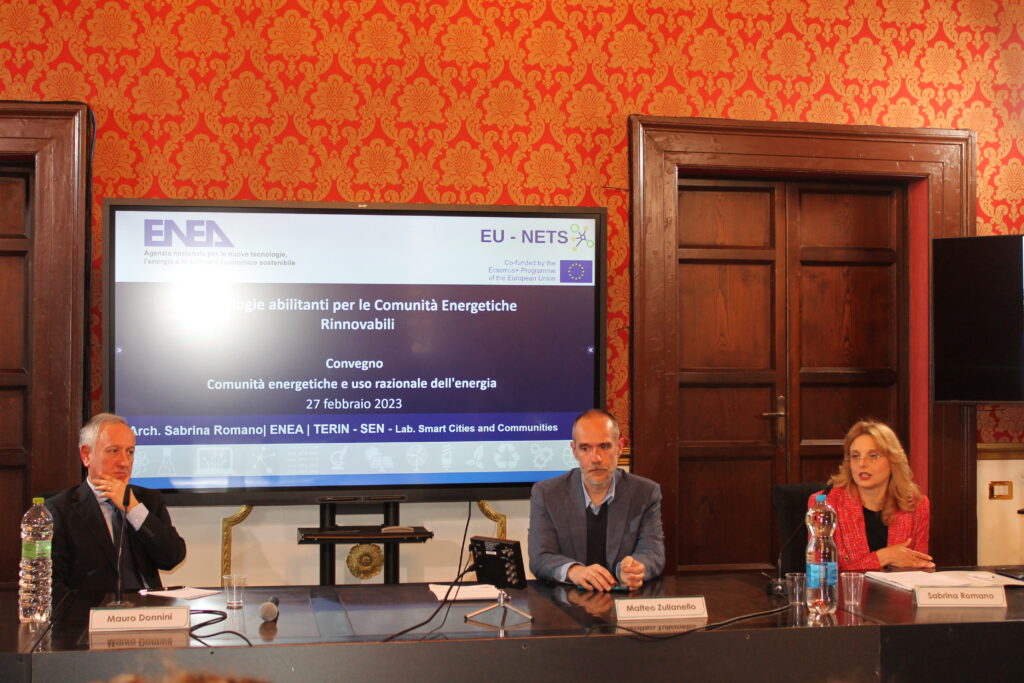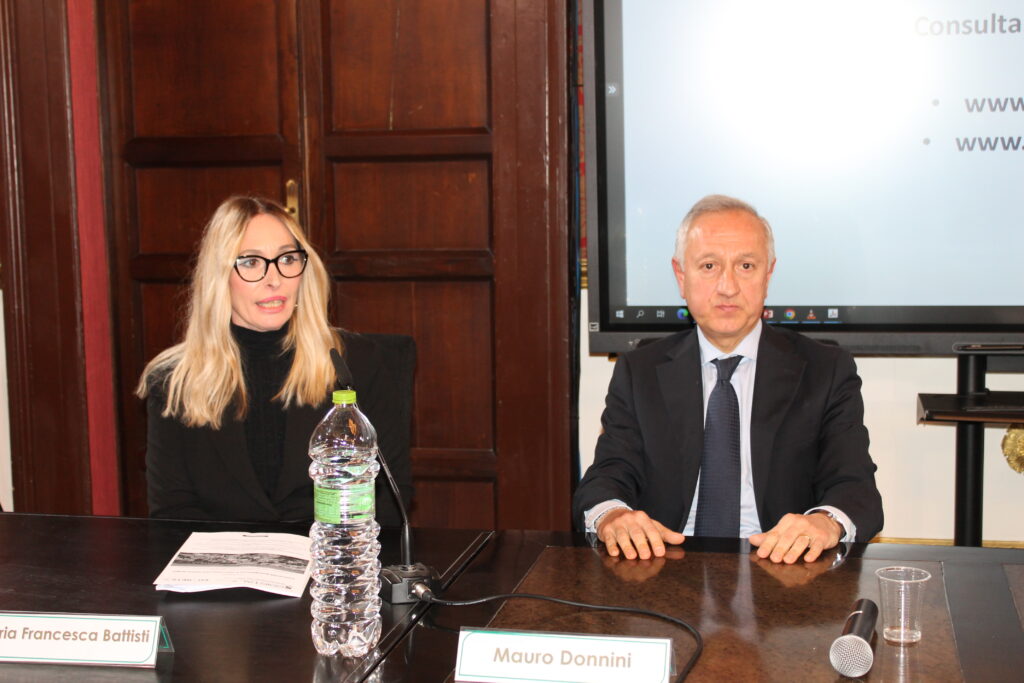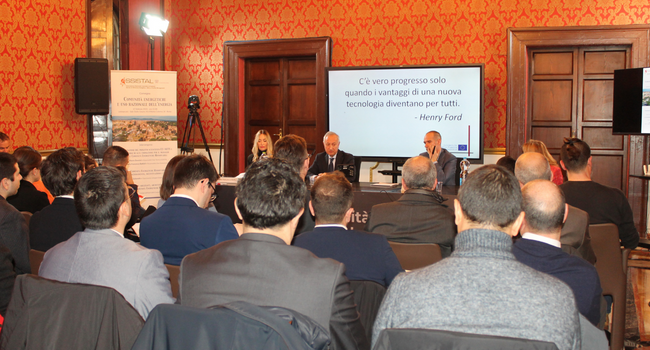The conference organized by Assistal “Energy Community and rational use of energy” relating to the European EU-Nets project was held on February 27 at the University “Guglielmo Marconi” in Rome.
As part of the conference, Dr. Arturo Lavalle, head of the research, development and international relations of the University, intervened for an initial greeting, with which the association has undertaken important collaboration initiatives.
Dr. Mauro Donnini, Head of the Technical Area of ASSISTAL, has framed the aspect of the Energy Communities as a complex multi-variable system, whose technical and economic performances are the function of a skilful and professional management direction. From this consideration, the focus was placed on the aspect of the real need to spread the culture on the subject and the need to create a specific professional figure specialized in Energy Communities. ASSISTAL is the scientific coordinator of the project carried out with the participation of the University of Athens (Greece) and Coruna (Spain) together with a Greek SME, EUDITI, and the Spanish research center ENERGYLAB. The objectives and results of EU-NETS achieved so far, respecting all phases, were also presented.
As part of the EU-NETS project, Dr.ssa Maria Francesca Battisti, Head of the ASSISTAL Training Area, presented the advanced training course for “Managers of energy communities”, an innovative training course that will allow participants (young and adults) to acquire or renew the skills necessary to manage development programs, implement innovation projects increasingly oriented towards “green solutions”, with particular attention to new technologies – including digital ones -. The educational program is under development and the start-up is scheduled for 2024. On this occasion, the Eu-nets e-learning platform and the dedicated website were presented.
This was followed by the speech by Dr. Matteo Zulianello, project manager «User at the center of the energy transition» – RSE SpA, who, in addition to recalling the 2030 objectives for production from renewable sources, reviewed all the European regulations and various Legislative Decrees implementation, highlighting the opportunities of the various self-consumption mechanisms defined by the TIAD. During the meeting, the draft of the Legislative Decree was also presented. which will regulate the incentives for the Energy Communities as defined by Legislative Decree 199/2021: the draft Decree provides for a structuring of the incentive with a fixed part and a part that varies according to the trend of the zonal hourly market price; the hope is that in the coming months the incentive and non-repayable contributions of the PN必利勁 RR will attract important investments for energy communities and produce significant impacts for the territories and for the electro-energy system as a whole.
The Arch. Sabrina Romano – Department of Energy Technologies and Renewable Sources of ENEA, deepened the concept of Shared Energy and the fundamental steps for the creation of an Energy Community, with a focus on digital support in the decision-making phases and performance monitoring through the available applications of ENEA, such as RECON, SMART SIM and DHOMUS. From the platforms, thanks to special interfaces dedicated to the Citizen, it is possible to follow the functioning and performance status of an Energy Community remotely, so as to allow the individual user to have an aware and active approach to the Energy Community. Digital management configurations of the distribution of incentives among the members of the Energy Community were then hypothesized based on Block-Chain type information technologies, capable of also enabling the exchange of goods and services within the same community so as to strengthen its cohesion and participation.
